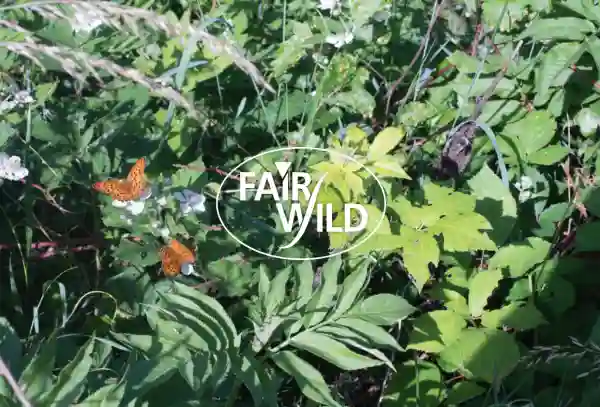

Here's to a beautiful FairWild world
The global concern
Around 26,000 of Mother Nature’s plant species have well-documented medicinal uses.
Around 3,000 of these are traded internationally, with the majority (60-90%) harvested directly from the wild. Although we often don’t realise it, wild plants are used in a wide range of everyday consumer products including teas, food, supplements, cosmetics and herbal remedies.
We know little about how this trade is impacting species as only one fifth have had their threat status assessed. Where there is data, we know that more than one in ten plant species are at risk of extinction in the wild, according to the International Union for Conservation of Nature (IUCN).
The increasing and widespread demand for wild plant ingredients is placing a major strain on individual species, ecosystems and harvesting communities worldwide. And there has been little in the way of industry-wide standards and regulations when it comes to wild-harvested ingredients.
What can be done?
The FairWild Foundation was established to work towards market transformation and provide best practice guidelines and certification for harvesters, operators, producers and suppliers involved in the trade in wild plant ingredients.
FairWild certification helps protect wild plant species and the beauty of their natural habitats, whilst respecting deeply rooted traditions and cultures and helping support the livelihoods of the communities that depend on them.
Pukka Herbs buys a large proportion of all the FairWild certified herbs harvested in the world and has the largest FairWild range of any company.
Not only do we want to be leaders in sustainable wild harvesting, we also want the whole herbal community to adopt this respectful approach.
Encouraging regeneration
Under the FairWild certification, a collector is required to harvest plants in a way that will not have a negative impact on the population, for example leaving enough of the plant in the ground to regenerate again for subsequent years. This ensures the sustainability of supply and minimises the impact on the ecosystem.
Paying fairly
To reflect and respect the extra effort and time that FairWild sustainable herb collection requires, individual FairWild collectors are paid a higher price.
We also pay an additional amount - known as the FairWild premium – to the collectors’ cooperative, to be spent on social and environmental projects for the local community.
You can find out more by reading two recent FairWild reports:
Wild at Home: the global harvest and trade of wild plant ingredients
The Invisible Trade: Wild plants and you in the time of COVID-19
Don’t just take our word for it, here is Hugh Fearnley-Whittingstall talking about our FairWild project in India.

Author: Marin Anastasov
Head of Procurement
Marin Anastasov grew up in Bulgaria, where he was involved in sustainable herb collection and wild resources management. He studied agriculture and subsequently completed MSc in Organic farming at Aberdeen University. Marin joined Pukka Herbs as Sourcing manager and has since led the development of the value chain, balancing the demands of rapid business growth, ethical trade and environmental conservation.
Years of experience:
25 years in organic food and farming
Professional registrations:
Marin is a Master Beekeeper and holds the National Diploma in Beekeeping, which is the highest beekeeping qualification awarded in the UK. He has active involvement in British Beekeepers Association and runs training courses for furthering the craft of beekeeping.
Education:
Marin has two MSc. One in Food Science and Technology and another one in Organic Framing. They both support his work at Pukka when it comes to compliance to standards, farming, cultivation and sourcing of our herbs, as well as herb processing and tea manufacture.
